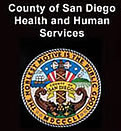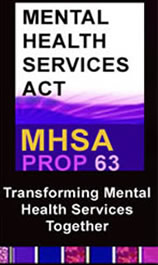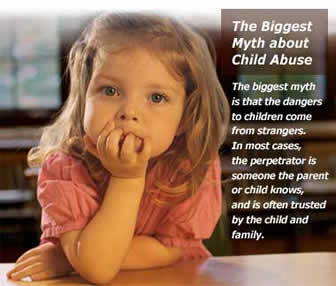.
How to Prevent Child Abuse ....“
Child abuse cuts across all socio-economic groups, races & religions. Most people who abuse or neglect a child are ordinary people who are overwhelmed and don’t have the skill to cope. Most children come to the attention of child welfare because of child abuse such as in the following situations. The categorization of child abuse depends on the country though there are basically four types of child maltreatment.
Last year, in San Diego County, the Child Abuse Hotline received calls about 70,000 children alleging abuse or neglect – that is more children than one could fit inside QUALCOMM stadium! 1) Physical abuse: any physical action that is the application of unreasonable force by person (an adult or youth) who harms to any part of a child’s body. This includes punching, slapping, whipping, hitting, kicking, pinching, burning, and biting. The child get external injury such as bruises, burns, welts, stabs, or bite marks. In extreme cases, death. 2) Sexual abuse: any actions or words that the purpose for sexual gratification to a child by an adult or youth. This includes intercourse that exposure to sexual contact, activity or behavior. Also sexual references such as words or gestures to the child’s body or behavior. 3) Neglect: Failure of providing the physical or psychological necessities of life for a child by parent or guardians. In other words, ignores or overlooks a child’s basic needs. This includes “failing to provide a child with food, shelter, basic health care, supervision, nurturing or protection from risks” (British Columbia, 2007). 4) Psychological or emotional abuse: any actions or behaviors that harms a child psychologically, emotionally, or spiritually. Harmful behavior which by adult is likely to have serious, negative emotional effects on a child such as scapegoating, blaming, neglect, rejection, humiliation or insults. If you suspect a child is being abused or neglected, call (858) 560-2191 immediately. Calls can be made anonymously. Of course there is not only one right way to raise a child. And there is no such thing as a perfect parent--or a perfect child. But there are some guidelines for parents to help their children grow up healthy and happy: • Show your love. Every day, tell your children: "I love you. You're special to me." Give lots of hugs and kisses. "Hug your child", tell him you love him and show him you love him every day. If there is one universal truth about parenting, it’s that children need to know they are loved. Listening to your children tells them that you think they are important and that you are interested in what they have to say. Comfort them when they are scared, whether or not you think that they should be afraid. Show them you have taken steps to protect them. • Provide order in their lives. Keep a regular schedule of meals, naps and bedtimes. If you have to change the schedule, tell them about the changes ahead of time. When your children learn something new or behave well, tell them you are proud of them, even if they haven’t done it perfectly. When your child makes a mistake, don't say, "You were bad." Good children can make mistakes. Instead, explain what the child did wrong. For example, say: "Running into the street without looking isn't safe." Then tell the child what to do instead: "First, look both ways for cars." • Be consistent. Your rules don't have to be the same ones other parents have, but they do need to be clear and consistent. (Consistent means the rules are the same all the time.) If two parents are raising a child, both need to use the same rules. Also, make sure baby sitters and relatives know, and follow, your family rules. Do things together, like reading, walking, playing and ,even, cleaning house. What children want most is your attention. Bad behavior is usually their way of getting your attention. • Parents need “time outs” too. When you find yourself losing your temper, take a break. Also, counting to ten or more before discipline or criticism can help to diffuse the situation. No one really listens when someone is yelling at them. Asking for help is not a sign of weakness.For more information about how you can help prevent child abuse, visit www.capfsd.org or call the Child Abuse Prevention Foundation at (858) 278-4400. • Local Resources: Access and Crisis Line: 1- 800- 479- 3339 The Child Abuse Prevention Foundation is a San Diego-based nonprofit organization founded in 1981 whose mission is to break the cycle of child abuse through prevention, education, advocacy and funding. |
|
Salud+HealthInfo is for information and educational purposes only. You should not rely on this information as a substitute for personal medical attention, diagnosis or hands-on treatment. If you are concerned abut your health or that of a child, please consult your family's physician or health provider immediately and do not try to diagnose yourself. Salud+Health Info is published and distributed free of charge by Info Option Network (ION) Publishing Company. Copyright © 2001-2006 Info Option Network |
|
San Diego's SALUD+HEALTH info in English & en Espaņol

The first, the best & the only English & Spanish Magazine in San Diego, California



 ..
.. Each day, more than 3 children die as a result of child abuse at home in the United States.
Each day, more than 3 children die as a result of child abuse at home in the United States.